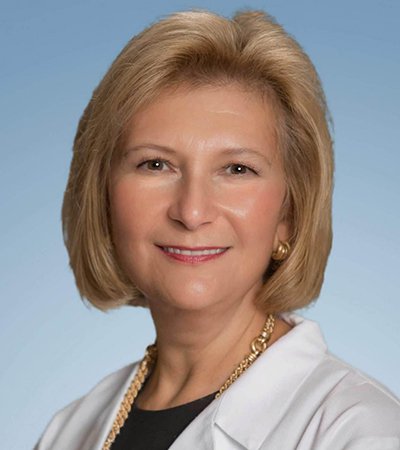

Gulchin A. Ergun, MD uses new approach to distinguish reflux issues
In recent weeks, Gulchin A. Ergun, MD, has been using a “powerful” new approach that may be instant and cost-effective to test for severe reflux.
“I don’t know if it’s perfect yet, but we’re going to continue to test it and find out. Right now, I know it’s fast,” said Dr. Ergun, David M. Underwood Distinguished Professor of Medicine in Digestive Disorders, Department of Medicine, Professor of Clinical Medicine, Academic Institute, Houston Methodist, Weill Cornell Medical College.

Gulchin A. Ergun, MD
“We can see immediately – or within five to 10 minutes into the procedure – if the integrity of the esophagus is normal or abnormal,” said Dr. Ergun who also runs Houston Methodist’s Reflux Center and Digestive Disease Endoscopy, helping surgeons and gastrointestinal doctors to determine the severity of reflux in patients who may need treatment for other digestive disorders.
Current testing for the severity of acid reflux can take 24 to 96 hours for results and assessment of some esophageal disorders such as EoE (eosinophilic esophagitis) usually requires multiple endoscopies to test areas along the length of the esophagus. Another method of looking at reflux, which is not acidic, requires a tube to be inserted into the patient’s nose and remain there for 24 hours while data is collected on the patient’s reflux.
This new method may instantly detect changes in mucosal integrity associated with Gastroesophageal disease (GERD) and EoE as well as non-GERD. It may also be used to monitor treatment response. The current procedure Dr. Ergun has used for the last 10 years can’t distinguish as quickly or easily the differences in various esophageal pathologies.
“This new device tells us what we need to know at the time of the very first endoscopy,” she said.
Diversatek Healthcare developed the MiVu™ Mucosal Integrity Testing System that Dr. Ergun is testing. It uses a balloon or the MiVu™ Endo Cap and new software to detect changes in esophageal mucosal integrity during endoscopy. The endcap attaches to the endoscope, allowing visualization of the acquisition target. Real-time impedance values, a mucosal integrity contour pattern and disease probability are displayed, distinguishing the various esophageal pathologies.
“The tissue of the esophagus is the same as your hands and feet. That means it can tolerate injury and has good defense mechanisms. So, we can’t always see damage to the esophagus during endoscopy,” she said.
I don’t know if it’s perfect yet, but we’re going to continue to test it and find out. Right now, I know it’s fast.
Gulchin A. Ergun, MD
Title
The clinician must choose where to biopsy along the long length of the esophagus or where to place a catheter that measures acid or non-acid refluxate. The current technology can only measure the acidity of refluxed material at specific points and doesn’t measure if the epithelium or lining of the esophagus provides an effective barrier to acid or non acid reflux. The new method for testing mucosal integrity may be a more accurate and cost-effective method to test if injury has occurred that can’t be seen by the naked eye and prevent repetitive tests looking for acid reflux as proof of disease.
Dr. Ergun said the new technology may be especially important to Houston Methodist because of the hospital’s lung transplant program, which is ranked the best in Texas and No. 8 in the nation by U.S. News & World Report for Pulmonology and Lung Surgery.
As one of the nation’s leading lung transplant programs, Houston Methodist J.C. Walter Jr. Transplant Center was the location of the first successful single lung transplant in the U.S. in 1987. The transplant center accepts complex lung transplant cases for patients who are not considered good candidates elsewhere because of age or disease complexity.
She explained that lung transplant patients are more likely to reject the transplant if they have reflux. The patients are vulnerable to anything they can aspirate. Thus, they are almost always automatically tested before surgery for reflux. If the patient is thought to have a high risk for reflux, they get anti-reflux surgery.
“If people can’t breathe very well or are already very sick, you can’t do multiple endoscopies to them to test for reflux.
“This could be a very powerful way to avoid additional testing and get a big return in a very specific and vulnerable population,” Dr. Ergun said.





